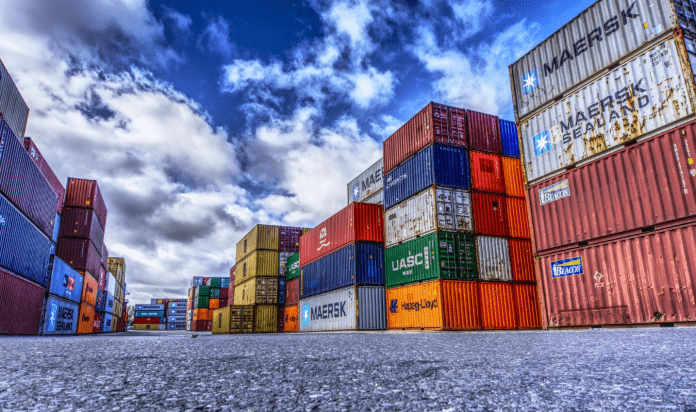US congressional lawmakers continue to ramp up efforts to scrutinize the nation’s use of shipping containers produced by China, with US House Representative and South Dakota Republican Dusty Johnson including a provision in the latest defense bill calling for Congress to study China’s “monopoly of shipping container production.”
With the US House of Representatives passing the annual defense bill on June 14, that provision also passes. The Senate has yet to vote on the defense bill.
The amendment requires Congress to better understand the production and acquisition of shipping containers from foreign adversaries in the context of national defense requirements, according to Johnson and the bill’s language. The bill also calls for Congress to study U.S. procurement options from countries that aren’t foreign adversaries.
“The United States should not solely rely on foreign adversaries for containers, which are not only used to ship consumers’ goods, but also sensitive defense systems,” said Johnson’s announcement. “Congress should better understand our country’s reliance on foreign adversaries, like the [People’s Republic of China], for production and acquisition of shipping containers in order to make effective policy decisions to better secure supply chains from China.”
Another provision of Johnson’s related to national security and US maritime interests also made it into the defense bill. That provision, which was initially in Johnson’s March 2023 bill on ocean shipping reform, calls for the United States to “protect global supply chains from China’s malign influence and increase fairness in the markets” by examining how the Shanghai Shipping Exchange, which Johnson defines as a platform connecting shippers with carriers to make agreements or contracts for transporting cargo, manipulates the market to serve China’s interests.
The passage of the defense bill in the House and Johnson’s provisions that went along with the bill’s passage are just part of a recent string of actions critical of China’s growing dominance in maritime shipping.
This past May, US senators Marco Rubio (R-Florida) and Mark Kelly (D-Arizona) and US representatives Mike Waltz (R-Florida) and John Garamendi (D-California) released the report Congressional Guidance for a National Maritime Strategy, which discussed how the U.S. should counter China’s “coercive actions to limit freedom of navigation,” according to a release. The report doesn’t address container production but is critical of the decline in U.S. commercial shipbuilding capacity.
In March 2022, Federal Maritime Commissioner Carl Bentzel released a report that investigated China’s monopoly on container production. The report, which was not an official Federal Maritime Commission report but one in which Bentzel shared his personal views, noted that three Chinese manufacturers manufacture over 95% of the containers in the world, including those used in the United States.
Bentzel’s report argued that when container demand increased during the Covid-19 pandemic, manufacturers appeared slow in ramping up production, which might be construed as a way to manipulate market pricing. Furthermore, the Chinese manufacturers that produce the containers also receive large government subsidies, according to Bentzel.
“It is the author’s view that the global supply chain is too interdependent not to have broad
access and manufacturing capabilities for intermodal operational equipment,” Bentzel said in his report. “The United States should assess whether given market dominance that further trade action be contemplated and whether to invest more aggressively in next generation container manufacturing technology.”







